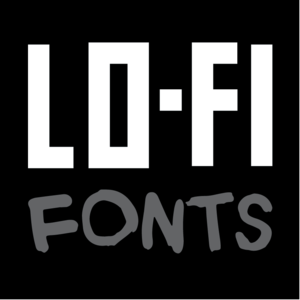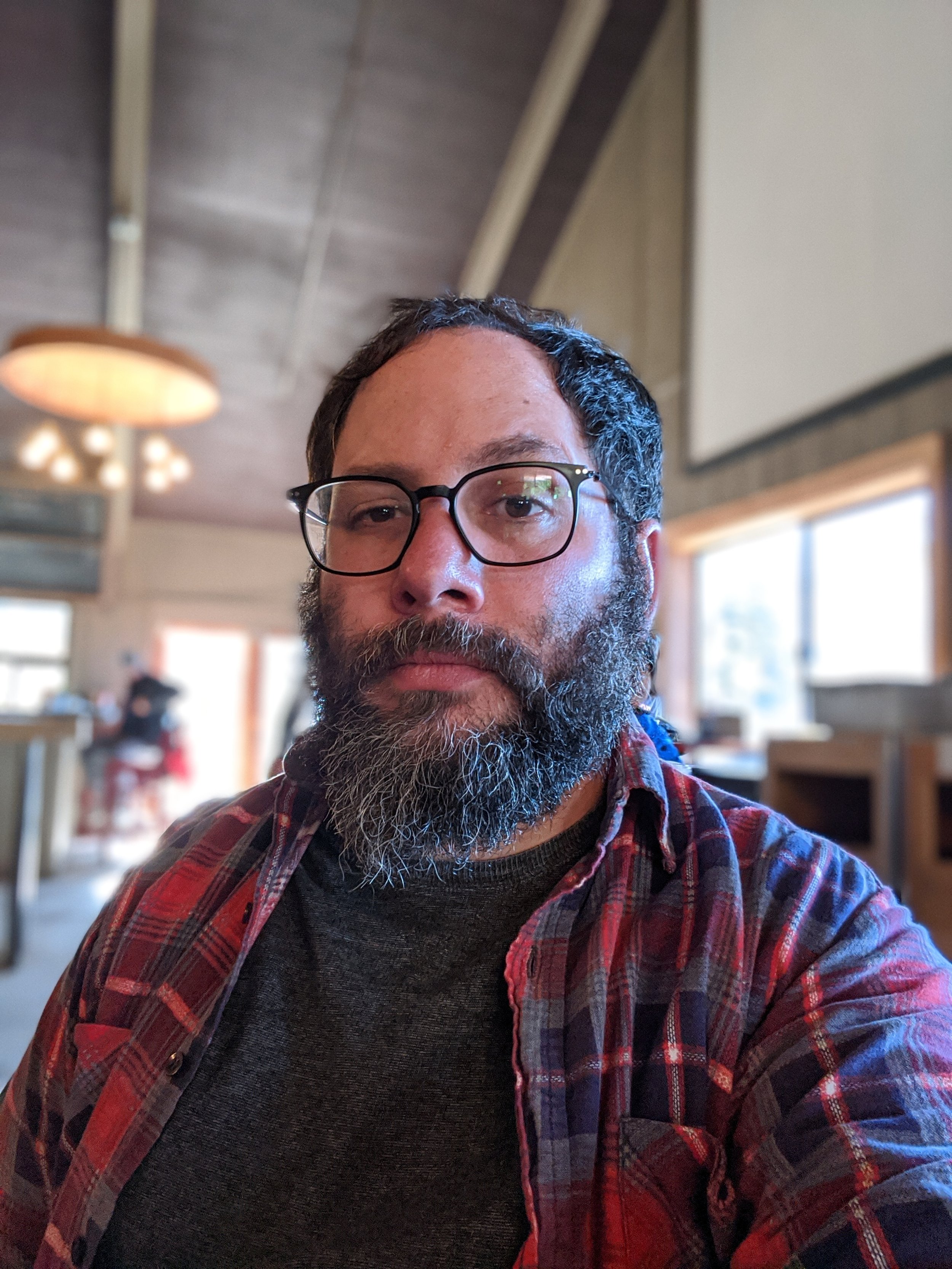J.M. Brandt and Theo Prasidis are the writing duo behind SWAMP DOGS: HOUSE OF CROWS on Scout Comic's Black Caravan imprint. J.M Brandt is currently working on several other unannounced projects, but you can read his short story, “The Welcoming Committee” in Vol. 3 of MIDNIGHT MAGAZINE'S anthology MIDNIGHT TALES. Theo Prasidis' new book BLACK MASS RISING is forthcoming from TKO Studios, and readily available from Image Comics is THE DOOMSTER'S MONOLITHIC POCKET ALPHABET.
J.M. Brandt
Theo Prasidis
J.M., Theo, tell us a little bit about how you both got into comics and what about the medium makes them perfect for telling your stories.
Theo: I never was much into comics. I grew up as a movie kid, devouring everything from mindless 1980s Van Damme action flicks, to Akira Kurosawa’s sophisticated epics. I loved cinema as a whole, so I studied to become a filmmaker. Along the way however, I realized that being a filmmaker, and having to deal with so many different people in order to tell a story, takes much more tenacity and resilience than I had. So I quit chasing that, and worked on different things. At some point I started writing a tongue-in-cheek alphabet about doom metal, a genre I was very much involved with because of a music festival I was curating at the time. I wrote it as a joke, really. I brought in Maarten Donders, one of the scene's most prolific illustrators, to do the art, with the ambition of printing a couple of copies and selling them at the festival’s merch booth. One night I got the crazy idea of pitching this to Image Comics, and within twenty minutes Eric Stephenson got back to me, saying they’ll put it out. That was it for me. Everything made sense. With comics I get to tell the exact stories I want to tell, without studio pressure, budget restrictions, or managing a fucking army. They’re the perfect medium for me. They’re downright liberating.
J.M.: I was a child of the 80s, and as such, grew up on cartoons and Toys’R’Us. I really cottoned early to “Superfriends” and was obsessed with the early 80s Marvel and DC action figures. So I guess that’s how I was first exposed. In fact, around the time I was 3 or 4 we would rent old VHS collections of the 1960s Marvel cartoons and I’d watched them so much that we wound up wearing down the tape on a couple. I still have vivid memories of the covers depicting Namor and Thor… to the point I could even tell you what part of the store they were in nearly 40 years later. Flash forward and my house is rather close to a shop called Golden Apple… and they had a bitchin’ mural on the side of the wall that fascinated me. It was Wolverine, unmasked, from the cover of Wolverine #1. I want to say an old iteration of the mural also had Red Sonja on it, but you can’t quote me on that part. As soon as I had money “of my own” as a kid, that was the first shop I wanted to spend it all in. I believe the first comic I bought on my own was a back issue of Moon Knight. I’ve been hooked, more or less, ever since.
As for what makes them the perfect medium for storytelling? They give you a level of control over the narrative and the visuals of a story that no other medium can. The presentation can be as mundane or as abstract and experimental as you want. You control the pacing at an almost granular level. In a way it takes the best of writing prose and making a movie or TV and distills it to this wonderful sequential package.
Two writers on separate paths and an ocean between you. How did the writing partnership come about, and how did you know Swamp Dogs was the book you wanted to pitch?
Theo: At this point, I feel like I have told the story of how I met J.M. more times than how I met my own wife! But it’s totally worth it, because the whole thing was such a happy coincidence. We were both contributors at Screen Rant, the entertainment website, we were digging each other's articles, and we got talking. Music, movies, TV shows, our tastes were very similar, so we decided to work on something together. The idea was to make our own pop culture website, but then my Image book got announced, and J.M. came to me with a proposal: imagine if you will a Tombs of the Blind Dead comic book, but instead of rural Spain, it takes place in the swampy South, and instead of Templar Knights, you have undead Confederates. To say that I was hooked, would be an understatement.
J.M.: What he said. It’s a pretty interesting meet-cute, though, isn’t it? Swamp Dogs, at least a very distant form of it, was an idea that I’d been unable to shake for nearly a decade when I brought it to Theo to work on it together. I needed a like-minded soul to help me give birth to it. Theo was the man for the job.
A comic set in the south, undead confederates, scantily clad women. I know we only have the first issue out, but has there been any…controversy that either of you have had to address? Anything either of you would like to state for potential readers that might be cautious to pick up a book involving undead confederate soldiers?
Theo: Dealing with the controversy of the subject matter was one of our earliest conversation topics. We’re forward thinking people who are very aware of how hurtful certain themes can be, so we wanted to play this absolutely right. We did our best to portray the Swamp Dogs like the truly remorseless monsters that they are. There’s not an ounce of humanity in them, no inkling of redemption or sympathy. They’re evil to their very core. And in the wake of the Trump administration, and all the horrific things we’ve seen happening in the States over the past few years, they also work as great stand-ins for systemic oppression and violence.
J.M.: I wouldn’t call it controversy, but there have been some concerned voices both on Twitter and in person at conventions. Some have been concerned by our portrayal of queer women. Some have been concerned by our portrayal of race. In every instance, I listened to those concerns and responded as thoughtfully and sincerely as I could. We’re not out to misrepresent any group. Is there overt sexuality coming from the female leads? Absolutely. This is a grindhouse homage. This is a genre book at its core. But our thinking is that it is not innately a denigrating portrayal just because of the sexuality. These women are human beings, and there are complex goings-ons, a REAL romance and REAL emotions, that also get portrayed. And we are always open to listening to thoughts from the communities that we are representing in the book, and working to keep things balanced.
Are you working on other projects together? Any solo works you can talk about yet?
Theo: Well, we have a number of exciting things coming up in the Swamp Dogs universe, so we don’t plan to stop working together anytime soon. I have a new TKO Studios book that’s just been announced, an original Dracula-themed horror/fantasy graphic novel called Black Mass Rising, featuring some striking art by Jodie Muir. And I’m working on an awesome project with animated film director and illustrator Adrian Dexter, who is known for his cover work for the heavy psych/prog band Elder. Can’t say much about this one yet, but it’s one of those projects that keep you up at night. So yeah, I’m pretty psyched!
J.M.: There are proposals in. There are parties interested. But it’s one of those “if I told you I’d have to kill you” type situations. But I am currently writing a twisted short story about a modern day problem and how being alienated from your neighbors can lead to some pretty disturbing circumstances. That’s probably what I’m most excited about finishing next. It’s called, “What Are They Doing Up There?”
These all sound like awesome projects! As you both know by now I’m a bit of a horror hound myself, and while these aren’t all entirely horror projects, what is it about the dark that has you both creating in it?
Theo: I don’t know, man, I ask myself the same question all the time, haha! And I did try to develop a couple of more children-oriented projects recently, but I can’t seem to be able to wrap my head around them. I keep coming back to horror. I mean yeah, horror stands as a great metaphor for our deep, personal traumas, and our collective existential anxieties, and all that. But there’s more to it. I guess there’s something comforting in horror and fantasy. Like the world makes much more sense if there are monsters in it. I just can’t think of a better place to lose yourself in, than a good horror story.
J.M.: I don’t know exactly what compels me. I mean, The Count was my favorite Sesame Street Muppet (and not because of the math) and my first dream job (and current dream job) was being a Ghostbuster. Some people are just drawn to horror. It takes the right mix of nerves and grit and sense of humor in life, I think. Fiction is powerful because it allows our brains to play in the realms of the unreal and, at the end of the story/movie/game, we are safe and unharmed (except maybe our psyches). So why not really push the limits of the unreal and make it something catastrophic and violent beyond measure?
For Swamp Dogs, you both assembled the creative team. What goes into your thought process for finding the right people to work with? With different projects is it the same process?
Theo: The process is always the same to me: figure out the vibe I want the project to have, and find the team that will absolutely nail it. It doesn't matter where they are from, or how big a name they are, or how many books they have put out. If they’re the right people for the project, they get the job.
J.M.: As a creator and writer, I see the images of what I am making before they’re committed to paper. From there it is surprisingly simple to see whose work (or potential in their work) fits most closely to what I see in my mind’s eye. That’s not to say that it’s a simple process, though. Like with Swamp Dogs, Theo and I went through dozens of artists and letterers before figuring out whose styles would mesh the best with what we wanted to accomplish. We just got insanely lucky that we wound up with our first choices!
I ask everyone I interview…If you could only give one piece of advice, be it for writing or life, what would it be?
Theo: There are three pieces of advice I usually give that apply both to comics and life. One, take your work seriously. If you won’t do it, no one else will. Two, keep on trying. It’s easy, even tempting, to just quit, but trust me when I say that there are people out there who are going to believe and invest in your vision. You just need to find them. Three, and hear me out on this one: don’t be a dick.
J.M.: If you believe in something and love it… then there are other people out there that will be picking up what you’re putting down. So don’t doubt your vision.
Theo:
https://www.facebook.com/theo.prasidis/
https://twitter.com/TheoPrasidis
https://www.instagram.com/theoprasidis/
J.M. Brandt:
https://twitter.com/MRJMBrandt
https://Instagram.com/j.m.brandt
https://facebook.com/MrJMBrandt





